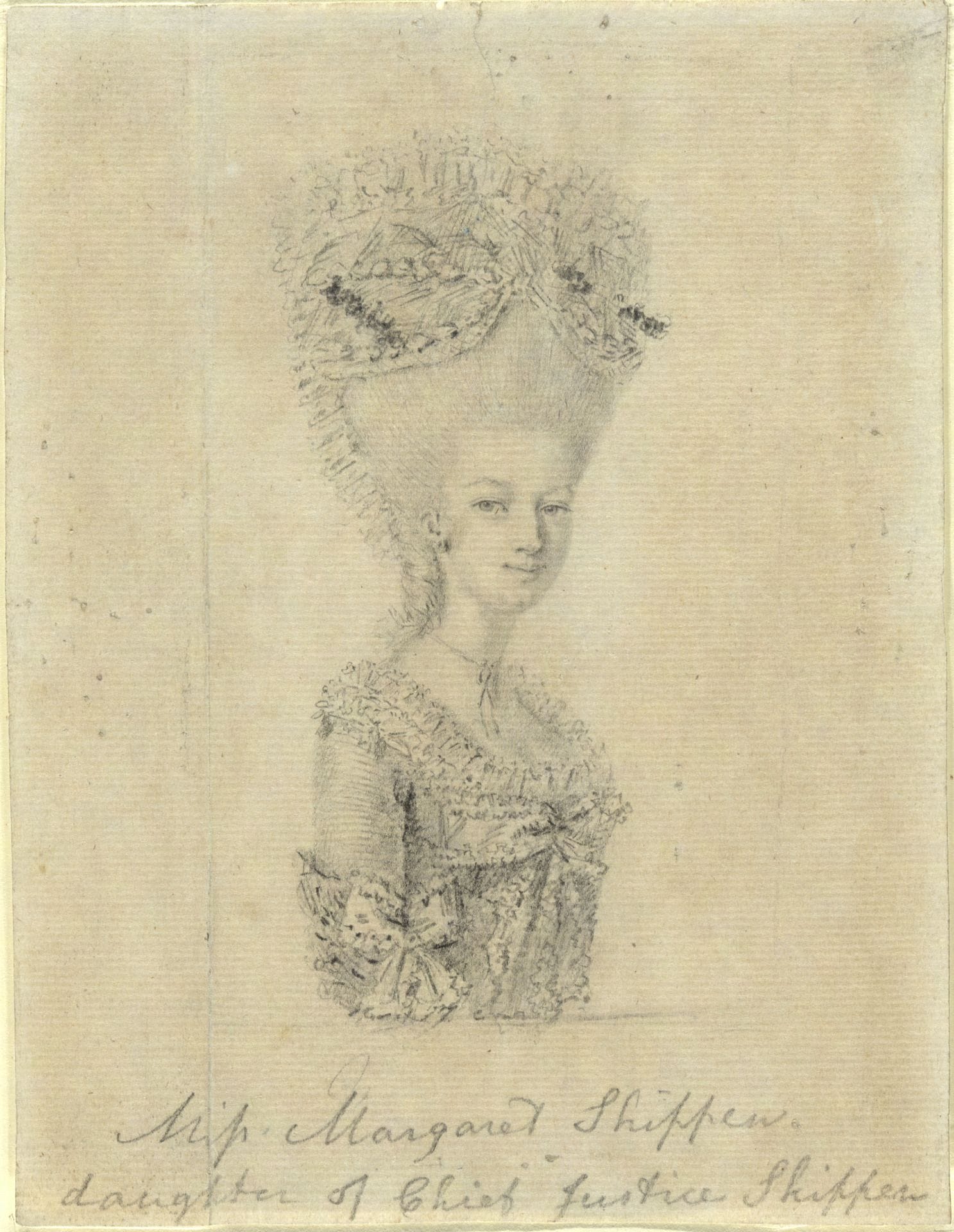In the shadowy world of espionage during the American Revolution, Peggy Shippen, a Philadelphia socialite, emerged as a pivotal figure. Her story is a captivating blend of loyalty, ambition, and the heavy consequences of her actions, forever entwined with the infamous treason of Benedict Arnold.
Peggy Shippen: Socialite, Spy, and Revolutionary Enigma
Margaret “Peggy” Shippen, born in 1760, remains one of the American Revolution’s most intriguing figures. Her life, interwoven with political turmoil and wartime intrigue, continues to fascinate historians and ignite debate. Let’s explore the captivating story of this enigmatic woman.
Growing Up Loyalist
Peggy’s childhood in Philadelphia unfolded amidst rising political tensions. As the daughter of Edward Shippen IV, a prominent Loyalist judge, her upbringing likely shaped her worldview. This Loyalist background adds another layer of complexity to her later actions and suggests a possible influence on her future husband’s betrayal.
Philadelphia’s Social Butterfly
During the British occupation of Philadelphia, Peggy flourished as a socialite. Her family’s home became a hub for Loyalist gatherings, attracting British officers, influential figures, and even suspected spies, including Major John André, head of British intelligence. This period offered ample opportunity for clandestine activities, and it’s easy to imagine Peggy navigating these complex social circles, charming and discreet.
A Scandalous Marriage
In 1779, Peggy married Benedict Arnold, the military commander of Philadelphia. This union shocked many due to the significant age difference and Arnold’s status as an American hero. The marriage ignited speculation, with some historians suggesting Peggy’s Loyalist leanings may have swayed Arnold, while others believe her involvement was more direct.
The West Point Plot
Peggy’s role in Arnold’s plot to surrender West Point remains a subject of intense debate. Was she a pawn, unknowingly entangled in her husband’s treachery? Or was she a cunning spy, actively passing messages and orchestrating the betrayal? Accusations labeled her a “high-paid spy,” but concrete evidence remains elusive. Some experts believe her involvement was crucial, while others suggest she was merely a messenger, caught in a web of deceit.
Exile and Aftermath
Following the exposed plot, Peggy fled with Arnold to London, living in exile under the shadow of their past. The couple raised a family while enduring social ostracism and financial hardship. Peggy died in 1804, her secrets seemingly buried with her.
Peggy Shippen’s Legacy
Peggy Shippen’s life offers a fascinating glimpse into the lives of women during the Revolution. Her story transcends simple labels of “socialite” or “spy.” It’s a tale of divided loyalties, political upheaval, and the weight of a controversial marriage. Her legacy continues to spark debate, reminding us that history is often painted in shades of gray.
Unanswered Questions
The search for truth continues. Researchers are still piecing together fragments of Peggy’s life, seeking to understand her true role and motivations. New interpretations of historical documents and ongoing research may one day offer a more definitive understanding of this enigmatic figure.
Did Peggy Shippen Have a Relationship with John André?
The connection between Peggy Shippen and Major John André remains a source of fascination and speculation. Their relationship during the British occupation of Philadelphia intertwined social interaction, political maneuvering, and alleged espionage. Was their bond purely strategic, or did it carry a romantic undercurrent?
Peggy’s social gatherings became a meeting place for prominent figures on both sides of the conflict, including André, head of British intelligence. This provided ample opportunity for covert communication and fueled rumors of a deeper connection.
André’s involvement in Arnold’s treasonous plot further complicates the narrative. The exchange of coded messages, possibly facilitated by Peggy, raises questions about the extent of their collaboration and the nature of their bond. André’s sketch of Peggy adds fuel to the speculation, though its meaning remains open to interpretation. Was it a token of affection or simply a portrait of a prominent social figure?
While some historians suggest a romantic link, concrete evidence remains elusive. The lack of definitive proof leaves room for ongoing debate and emphasizes the difficulty of separating fact from speculation in the historical record. Learn more about Maria Tallchief Quarter and her influence on the world of ballet, a stark contrast to the world of espionage Peggy inhabited.
Ultimately, the question of a romantic relationship between Peggy and André remains unanswered. Their connection, intertwined with espionage and treason, continues to intrigue, reminding us of the complexities of human relationships in times of conflict.
What Happened to Peggy Shippen After Benedict Arnold’s Treason?
After Arnold’s betrayal, Peggy Shippen’s life took a dramatic turn. She joined her husband in exile in London, leaving behind her family and facing an uncertain future. Life in England proved challenging. The couple endured social ostracism and likely struggled financially. After Arnold’s death in 1801, Peggy’s financial woes probably intensified, suggesting she was forced to sell belongings to support her children.
Peggy’s health deteriorated, and she died in 1804 at the young age of 44. The cause of death remains unclear, adding another layer of mystery to her story. She was buried in London, far from her birthplace of Philadelphia.
Peggy’s legacy is complex and intertwined with the controversy surrounding Arnold’s treason. Her role remains a subject of debate, with some historians portraying her as a manipulative figure, while others suggest she was a victim of circumstance. The truth likely lies somewhere in between, obscured by the passage of time and conflicting accounts. Learn more about Loretta Perfectus Walsh and her accomplishments as an American pediatric neurologist, a path vastly different from Peggy’s.
How Old Was Peggy Shippen When She Married Benedict Arnold?
Peggy Shippen was just 18 years old when she married Benedict Arnold, a man more than twice her age, in 1779. This union, between a young socialite from a Loyalist family and a celebrated American war hero, raised eyebrows and foreshadowed the dramatic events to come.
Born in Philadelphia in 1760, Peggy grew up in a world of privilege and political tension. Her family’s Loyalist leanings likely influenced her perspective and may have played a role in her later involvement with Arnold’s plot.
Their marriage took place during Arnold’s tenure as military commander of Philadelphia. The whirlwind romance and significant age difference fueled speculation and added to the intrigue surrounding their relationship.
Peggy’s alleged role in Arnold’s treason remains a point of contention. Some historians believe she actively influenced Arnold and facilitated communication with the British, while others suggest she was a pawn in her husband’s scheme.
The couple’s flight to London after Arnold’s betrayal marked a turning point in Peggy’s life. She lived in exile, facing social ostracism and financial hardship, until her death in 1804.
| Detail | Information |
|---|---|
| Birth Date | July 11, 1760 |
| Birthplace | Philadelphia, Pennsylvania |
| Marriage to Benedict Arnold | 1779 |
| Age at Marriage | 18 years old |
| Alleged Role | Espionage, Conspiracy |
| Fate | Fled to London with Arnold; died in 1804 |
Peggy Shippen’s story serves as a reminder of the complexities of human motivation and the often-blurred lines between loyalty and betrayal during times of war. Her youth, social standing, and alleged involvement in one of the most infamous acts of treason in American history continue to captivate and inspire further investigation.
- Unlock Water’s Symbolism: A Cross-Cultural Exploration - April 20, 2025
- Identify Black and White Snakes: Venomous or Harmless? - April 20, 2025
- Unlocking Potential: Origins High School’s NYC Story - April 20, 2025
















2 thoughts on “The Enigmatic Peggy Shippen: Unmasking the Socialite Spy of the American Revolution”
Comments are closed.